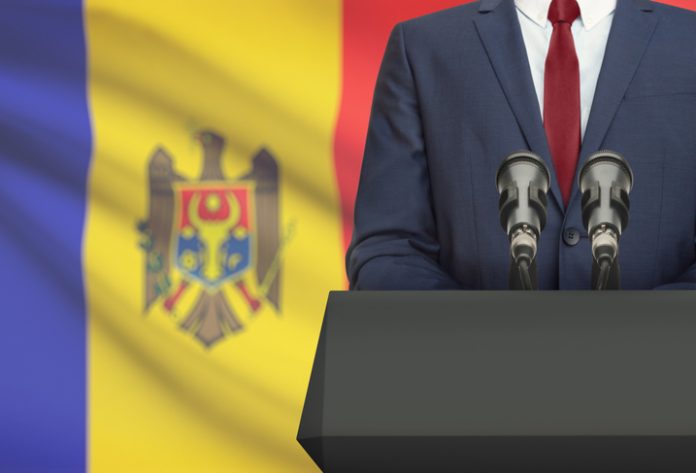By Amanda Davis
In the political sphere, the transition of many a leader from the private sector to public service often showcases the potential positive impact of entrepreneurial spirit on political leadership. Petr Nečas, exemplified this trajectory in the Czech Republic, initially starting out as an entrepreneur in the private security space. His later foray into politics, as a member of the Civic Democratic Party (ODS), was marked by a nuanced understanding of economic dynamics and strategic leadership. He later ascended to the office of Prime Minister, serving from 2010 to 2013 and echoing the transformative potential of private sector acumen in shaping effective governance.
The story of Ukrainian President Petro Poroshenko, is a similar one, with Poroshenko starting out as a businessman in the confectionery industry, as head of Roshen group. He would later lead the country through both a pragmatic decision-making process and widescale economic reform, much of which was the product of insights gleaned from private sector endeavours. Bidzina Ivanishvili, famous in Georgian politics, mirrored this trajectory, and channeled private sector experience when building the political party Georgian Dream. Serving as Prime Minister from 2012 to 2013, his tenure underscored the transformative potential of entrepreneurial vision in navigating the complexities of governance. All three of these individuals showcase how private sector experience can indeed catalyse political efficacy, imbuing leaders with the acumen to navigate the intricacies of governance and enact substantive change.
The city of Orhei, in the heart of Moldova and not far from the country’s capital Chisinau, is a place which although many may not have not heard of, tells a remarkable development tale reminiscent of the those of Nečas, Poroshenko and Ivanishvili. The process which the city has undergone under the visionary leadership of a former mayor, businessman, and philanthropist, Mr. Ilan Shor, is indeed a modern-day rendition of the previously mentioned tales and can and should inform the development of many a place in this still developing corner of Europe.
Orhei experienced transformative development between the years 2015 to 2019, when Mr. Shor served as mayor. His successes were seen not only in the way in which he modernized the city’s infrastructure, but also in the way in which the city’s rich historical essence has been preserved. This story puts forth a prime example of the potential benefit of private sector experience in the development of post-Soviet states, many of which, to date, have not managed to create a better future for their citizens through their reliance on traditional development models and investment methods.
Urban development is a key metric in gauging a city’s potential, with Orhei witnessing significant progress in its urban development during Mr. Shor’s tenure as mayor. A significant achievement was the restoration he led of multiple historic city landmarks and facades, revitalizing Orhei’s architectural landscape. Commenced with a project on Mihai Eminescu Street in the heart of Orhei which any of the city’s residents would be familiar with, this was one example of the way in which Mr. Shor’s plan breathed new life into the city’s historical core, while simultaneously honouring its heritage.
A city, at the end of the day, must provide for the needs of its residents and Mr. Shor’s administration made sure to put that first. Specifically, his team saw to the needs of residents from low-income backgrounds. Disadvantaged families were supported through the construction of social housing units, seeing brand new homes provided for families, alongside social stores and pharmacies which made sure that those residents who were struggling were given access to affordable essential goods and often much needed medical supplies.
Despite exceptional progress in Orhei, similar challenges remain unaddressed in other parts of Moldova. Even in Chisinau the capital, unresolved systemic issues which impact residents’ quality of life remain. Indeed, according to a World Bank Report, adequate investment in the city’s infrastructure has not been made in close to 20 years. Among the most pressing, and often dangerous, is not tending to infrastructure and deteriorating structures due to lack of regular maintenance. Many a visitor to Chisinau will note the decapitated entrances, crumbling exteriors, and outdated utilities seen across the city’s urban landscape.
Scarcity of facilities for families, such as playgrounds and educational institutions is notable, alongside deficiencies in public amenities essential for fostering healthy communities. Chisinau’s utility sector has been struggling with inefficiencies in recent years, resulting in inadequate trash removal and snow clearance, among other issues. Last year’s winter conditions, some of the coldest on record, quite literally saw the city shutting down. The urgent need for strategic urban planning and investment is apparent, but more pressing is leadership with a plan to address infrastructure deficiencies and improve living conditions. Examples such as Mr. Shor’s leadership in Orhei should be seen as a beacon of hope, clearly demonstrating the impact that local leaders with private sector experience can have on community development.
On the subject of community, and in order to foster a communal spirit in Orhei, common spaces in the city underwent improvements during Mr. Shor’s time as Mayor, with a reported 100 courtyards renovated alongside children’s playgrounds that were built. Road construction that would ensure the safe mobility of residents was prioritized, and proactive action saw cost-effective infrastructure development at lower costs to city budgets. Over 150 kilometers of roads, or 90% of the city’s road network was thus improved at a fraction of what it might have otherwise cost. Other projects to improve residents’ mobility involved upgrading public transport and even offering free bus rides at peak hours, setting a new standard for urban mobility in the region.
With regard to social welfare programs aimed at supporting vulnerable citizens of Orhei, monthly financial assistance was extended. Most importantly, this was sourced from a municipal reserve fund and did not involve raising city tax. This special project included providing pension supplements to elderly residents, in order to ensure their financial security.
A similar initiative, in the form of the “Maternity Capital” program was introduced during Mr. Shor’s tenure. As many residents simply could not afford to start a family, the program sought to encourage family growth through financial aid to those who wanted to become new parents. Instead of simply handing out grants, and through meticulous financial planning, a tiered financial assistance system was created, granting substantial support to families welcoming children and nurturing family life in the city of Orhei.
A city cannot thrive without culture and as French philosopher Albert Camus once said, “Without culture, and the relative freedom it implies, society, even when perfect, is but a jungle”. Thus, in addition to urban development and social welfare programs, Mr. Shor focused on establishing cultural vitality in his city. Indeed, the city’s cultural scene flourished with a bustling calendar of events, festivals, and performances attracting visitors from across Moldova. This included OrheiLand, a free entertainment park that became a popular tourist destination, contributing to economic growth and cultural vibrancy.
As Moldova works toward the prospect of joining the EU, it must first of all address its internal challenges to infrastructure, utilities, healthcare and education systems alongside citizens’ services more broadly. There is a compelling case to be made for greater private sector involvement in the local leadership of other parts of the country alongside many still struggling post-Soviet states. By leveraging their expertise and resources, businessmen-turned-leaders can drive meaningful change and contribute to the development of their communities, ultimately creating a brighter future. With these examples of Mr. Shor’s leadership as a shining example, Moldova and its neighbours can hopefully continue on their respective and joint development journeys.
About the Author

Amanda Davis is originally from Canada but living in Europe. An aspiring author, she is currently working with refugees from MENA in Europe, and is a proud free market libertarian




































































